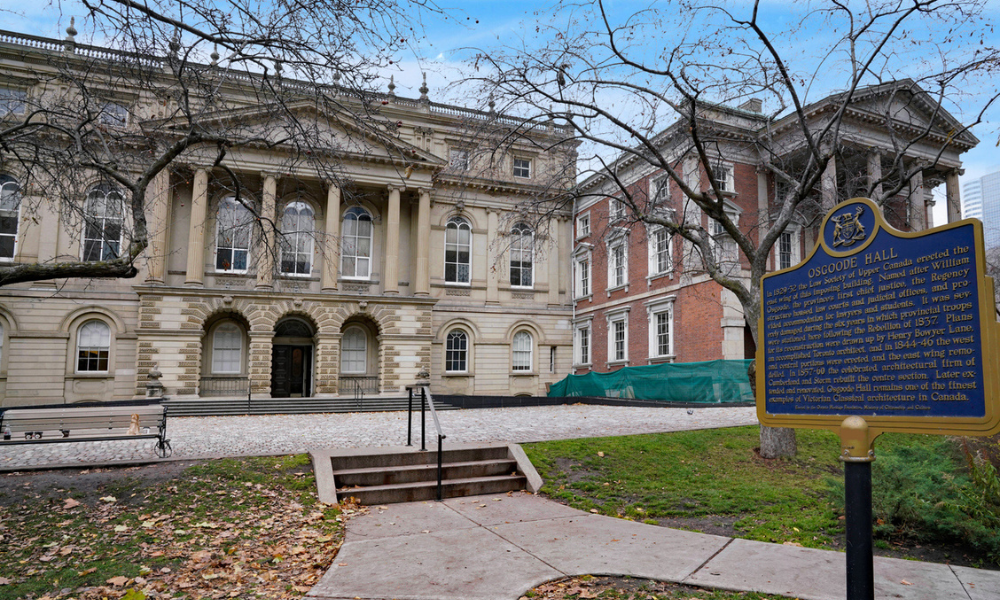Applicants challenging law under freedom of expression, among others

Animal Justice and two animal rights activists are in court this week arguing that Ontario’s Security from Trespass and Protecting Food Safety Act is unconstitutional. It is the first court challenge of a so-called “ag-gag" law in Canada.
Agricultural gag laws are common in the United States and restrict certain methods that animal protection groups use to raise awareness of their cause. These include the covert photographing and filming of farms and slaughterhouses by undercover employees and interacting with and documenting animals in trucks during transport to slaughterhouses.
Similar laws are in force in Manitoba and Alberta, and a federal law is currently making its way through Parliament. Bill C-275, An Act to amend the Health of Animals Act (biosecurity on farms), is a private member’s bill brought by Alberta Conservative John Barlow and is in the report stage in the House of Commons.
“These laws are sweeping the country,” says Camille Labchuk, a lawyer and executive director of Animal Justice.
The applicants argue the Act violates the freedom of thought, belief, opinion, and expression under s.2(b) of the Charter and unjustifiably restricts peaceful protest in violation of s. 2(c). They also argue that the law contains “dangerous and excessive arrest and penalty provisions” that breach ss. 7, 9, and 11(d).
The Security From Trespass and Protecting Food Safety Act received Royal Assent in June 2020. Its purpose, according to the Ontario Government, is to prohibit trespassing on farms and other places where farm animals are located and to prevent interference with farm animals. These prohibitions are aimed at preventing farm animals’ exposure to disease and stress, reducing the risk of contaminants entering the food supply, and protecting the safety of farmers, their families, farmed animal transport drivers, and the employees of farms and animal-processing facilities.
Section 5 of the Act prohibits a person from entering an “animal protection zone” with the prior consent of the owner or occupier of the premises, and consent is invalid if obtained under false pretences. An animal protection zone is an area of the farm or facility where animals are kept in an enclosure or is marked as such by signage. The Act prohibits stopping, hindering, obstructing, or otherwise interfering with a vehicle transporting farm animals. It also prohibits interfering or interacting with a farm animal being transported.
Section 8(5) of the Act allows a person authorized by the owner occupier of the farm or facility to arrest a person violating the act without a warrant.
The Attorney General of Ontario, the respondent in the application, argues that the Act is not an ag-gag law, does not prevent expression by activists, journalists, and others, but “protects animals and people from harm and the integrity of the food supply from biosecurity risks.” The AG notes that the regulations include exceptions for journalists and whistle-blowers to covertly obtain information on conditions and expose animal abuse. The AG also said that the power of warrantless citizen’s arrest is constitutional, and binding authority has already been upheld for equivalent provisions in the Trespass to Property Act.
Labchuk says ag-gag laws began emerging in the US in the 2010s in response to animal rights activists taking jobs on farms and using hidden cameras to document the conditions of the animals.
“We're saying that the law infringes on people's freedom of expression; both the ability of people to gather information and express themselves on matters of importance, i.e. animal cruelty.
“These types of undercover exposes are high-value speech,” she says. “They enhance the truth-seeking function that s. 2(b) is designed to protect by showing the public images from inside places the public doesn't normally have access to, which are factory farms and slaughterhouses.”
Section 2(b) also “clearly” protects the rights of the public to receive information, and one of the only accurate sources of information on animal treatment in factory farms comes from these undercover investigations, says Labchuk.









